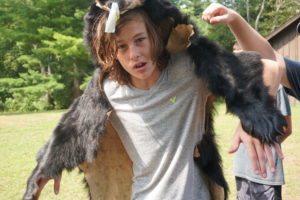Michigan Out-of-Doors New Counselors in Training Program
Written by Max Bass
Growing up through a camp program is truly an amazing experience that can affect a camper’s entire life. As the current Camp Director, I know that it put me on my career path and helped me to discover a career that I am passionate about and bring me joy. Here at the Michigan Out-of-Doors Youth Camp, we are constantly looking for ways to improve our programs for campers that are returning to camp year after year. Our improvements for returning campers have added so many cool programs and camp themes, such as Leave No Trace, Invasive species, Stewards in Training, and our original Counselors in Training (CIT).

This year we are continuing to improve all of our programs and are taking a new approach to our CIT Program. This year we are looking for returning campers to join as Counselors in Training. We are looking for campers who are at least 14, mature, and most importantly love camp, to apply to join us this summer as a Counselor in Training for FREE. We plan to have four CIT campers helping at camp each week. These campers will spend the week working closely with our program staff as helpers for each program and leaders for the campers. They will also spend time during the week helping the kitchen staff in the Dining Hall. They will help run our morning flagpole ceremony and even help with skits at the campfire program. In return for all of the help to our program, we are offering the week of camp free of charge.
If you think, your camper would be a great CIT this summer please have them submit a resume and cover letter to me, our camp director, at mbass@mucc.org. We understand that young campers might not have much experience for their resume, but we ask for one to allow campers to begin their professional development. We are also asking for a letter of reference from a teacher or employer, but this can be submitted after the resume and cover letter. Our deadline for applications is June 1, but we will fill CIT spots on a first come first serve basis. Please apply as soon as possible. Feel free to reach out with any questions.
The post Michigan Out-of-Doors New Counselors in Training Program appeared first on Michigan United Conservation Clubs.
Recent Posts



